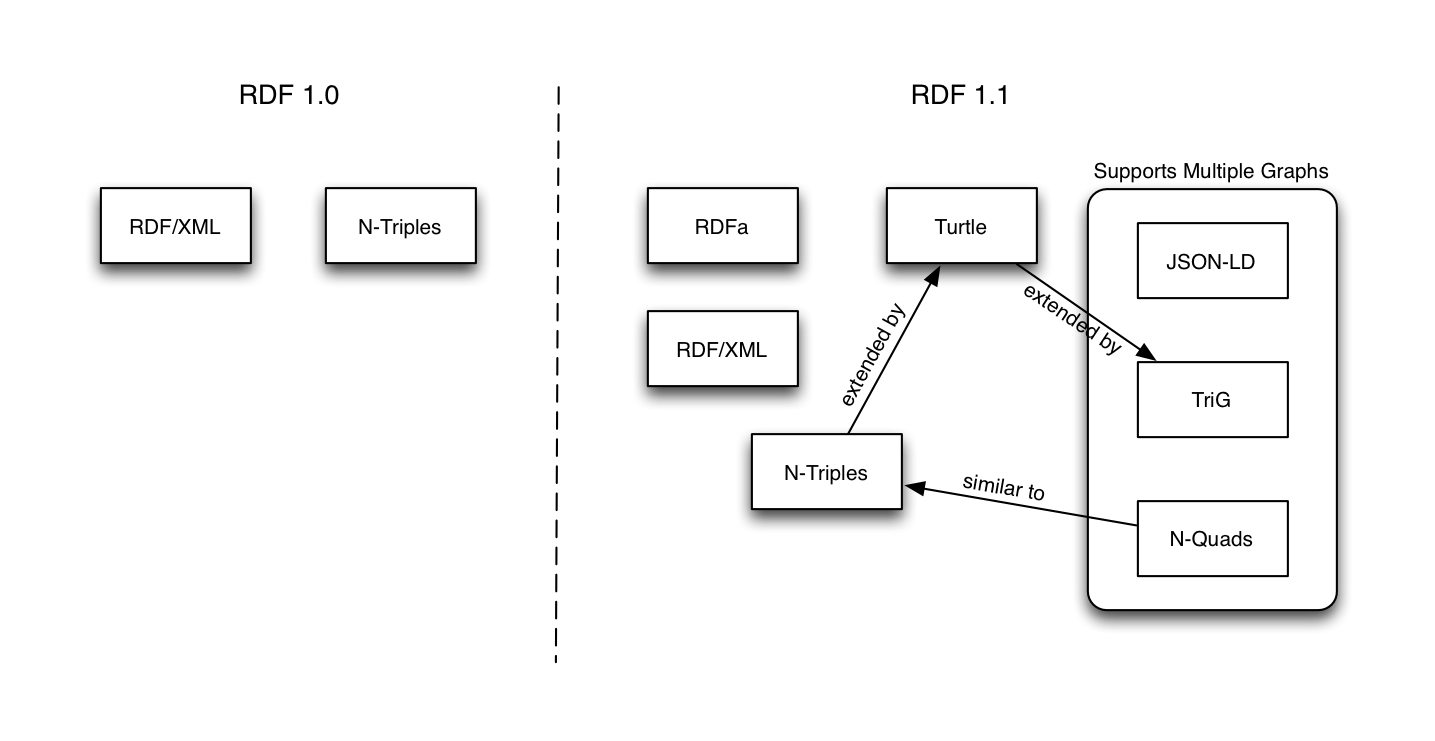Status of This Document
This section describes the status of this
document at the time of its publication. A list of current W3C
publications and the latest revision of this technical report can be found
in the W3C technical reports index at
https://www.w3.org/TR/.
This document is intended to provide the reader with a summary
of changes to RDF introduced in RDF version 1.2.
This document was published by the RDF-star Working Group as
a Group Draft Note using the
Note track.
Group Draft Notes are not endorsed by
W3C nor its Members.
This is a draft document and may be updated, replaced or obsoleted by other
documents at any time. It is inappropriate to cite this document as other
than work in progress.
The
W3C Patent
Policy
does not carry any licensing requirements or commitments on this
document.
This document is governed by the
2 November 2021 W3C Process Document.
This document is informative in nature. Its
purpose is to provide a summary of differences between RDF versions 1.1
and 1.2 and to introduce new additions in a very brief manner.
Readers new to RDF should start with the RDF 1.2 Primer [RDF12-PRIMER]
and then move on to the specifications in which they are
most interested. This document is meant to serve as a guide for those
already familiar with RDF 1.1 who wish to understand changes in version
1.2.
Normative specifications of RDF can be found in the
following documents:
The following prefixes are used in this document:
Most of the changes between RDF and RDF 1.1 do not have any effect on
implementations of entailment.
Datatype entailment formally refers to a set of 'recognized' datatypes,
replacing datatype maps in RDF 1.0 Semantics, but this does not have any
effect on implementation.
Datatype entailment formally refers to a set of 'recognized' datatype IRIs.
The RDF 1.0 Semantics used the concept of a datatype map: in the new semantic
description, this is the mapping from recognized IRIs to the datatypes they
identify. This change does not have any effect on implementation or semantic
entailments.
RDF entailment has two required datatypes xsd:string
and rdf:langString
which must be recognized, but this doesn't appreciably add to RDF
entailment as these two datatypes replace plain literals.
One change that does affect entailment is that graphs containing invalid
literals (e.g., "a"^^xsd:integer) are immediately inconsistent for
recognized datatypes, even in sub-RDFS entailment regimes.
RDF 1.1 includes RDF Datasets. However, the semantics of RDF Datasets in
RDF 1.1 is minimal and entailment per se is only defined on RDF graphs so
there are no changes here.
This section is non-normative.
The editor gratefully acknowledges the members of the RDF Working
Group who contributed to this document, including Richard Cyganiak,
Gavin Garothers, Pat Hayes, Sandro Hawke, Gregg Kellogg, Markus
Lanthaler, Peter Patel-Schneider, Eric Prud-hommeaux, Guus Schreiber
and Manu Sporny.
The membership of the RDF Working Group included Thomas Baker,
Scott Bauer, Dan Brickley, Gavin Carothers, Pierre-Antoine Champin,
Olivier Corby, Richard Cyganiak, Souripriya Das, Ian Davis, Lee
Feigenbaum, Fabien Gandon, Charles Greer, Alex Hall, Steve Harris,
Sandro Hawke, Pat Hayes, Ivan Herman, Nicholas Humfrey, Kingsley
Idehen, Gregg Kellogg, Markus Lanthaler, Arnaud Le Hors, Peter F.
Patel-Schneider, Eric Prud'hommeaux, Yves Raimond, Nathan Rixham, Guus
Schreiber, Andy Seaborne, Manu Sporny, Thomas Steiner, Ted Thibodeau,
Mischa Tuffield, William Waites, Jan Wielemaker, David Wood, Zhe Wu,
and Antoine Zimmermann.
